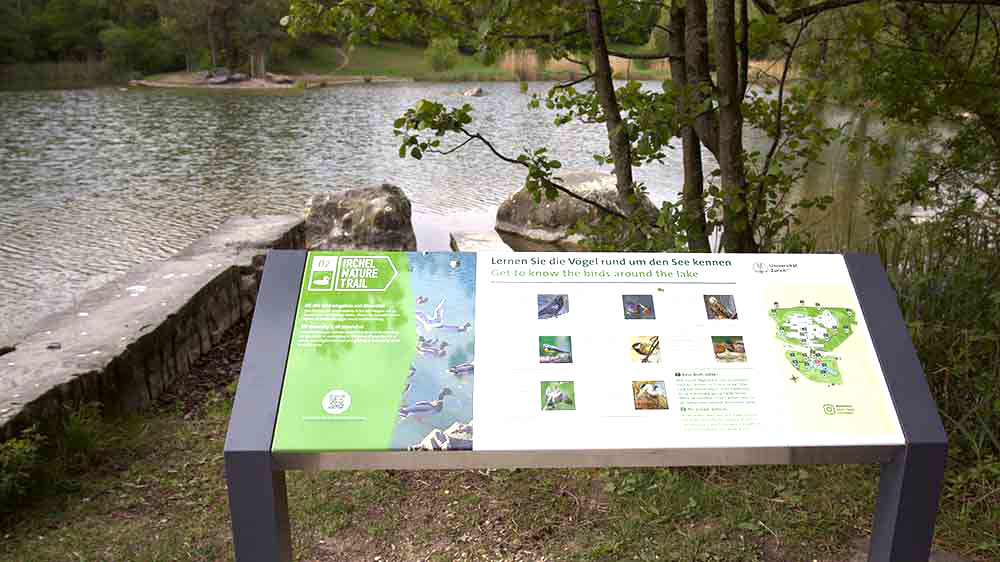Navigation auf uzh.ch
Navigation auf uzh.ch

Children playing, pensioners taking a stroll, students studying, or researchers on their way to the laboratory — all kinds of people visit Irchel Park. “But do they know that it’s a living ecosystem full of the most wonderful things?” UZH PhD students Alejandra Parreño and Katie Horgan wondered. As ecologists, they have a habit of noticing flowers being pollinated, lichens on trees or birds courting. “But, with today’s hectic lifestyle, we are aware that it is easy for people to overlook nature,” Parreño explains. And so the idea was born to display Irchel Park’s natural phenomena by means of a nature trail. “After more than a year of project work, we are now ready to open the Irchel Nature Trail,” says Parreño.
Around three kilometers in length, the nature trail leads visitors through the meadows, forests and mudflats on the Irchel Campus, with 20 knowledge stations providing information about Irchel Park’s ecosystem. “Although it was designed as a city park, its biological diversity is astonishingly wide,” says Morana Mihaljević, project manager of the Irchel Nature Trail and head of UZH Science Lab.
Using pictures and short texts, the information boards display topics such as the birds around the lake, the amphibians in the ponds, and the microorganisms in the streams. Visitors can learn how trees interact with fungi, the characteristics of wetlands, and which microhabitats are housed within dead wood. The park is also home to mammals such as foxes and badgers as well as insects such as bees, dragonflies, butterflies and moths, the characteristics of which are also described on the information boards. Other topics include: What stories do the rocks on the Irchel tell? Or how is the ecology of hills and mountains different from other landscapes? One of the stations also provides information about research at the Irchel Campus.
The trail is designed for a wide audience with different knowledge levels. “Our aim was to explain the different topics as simply as possible and to interest children and adults alike,” says Morana Mihaljević. Recent buzzwords such as “ecological resistance” or “microbes” are given special attention. The info boards also include quiz questions designed with children in mind, as well as do-it-yourself tips. For those eager to learn more, a QR code on each board leads to further information on the topic, current research or related events at UZH. “What started as a simple idea has now led to a transfer of knowledge between UZH and the public,” Alejandra Parreño explains. For the project initiators, the Irchel Nature Trail is a dream come true.